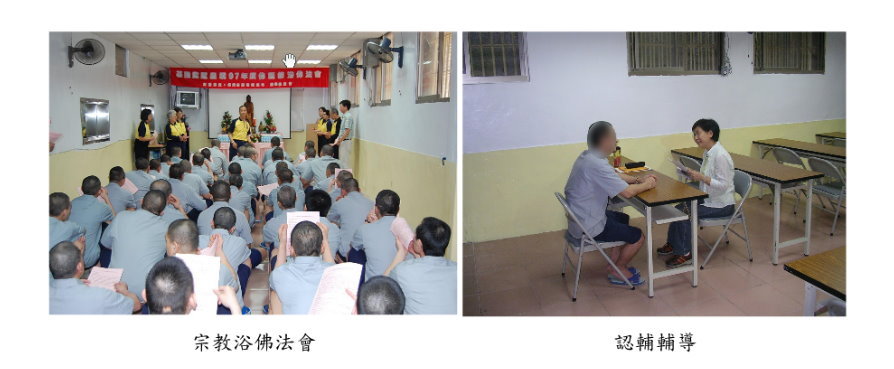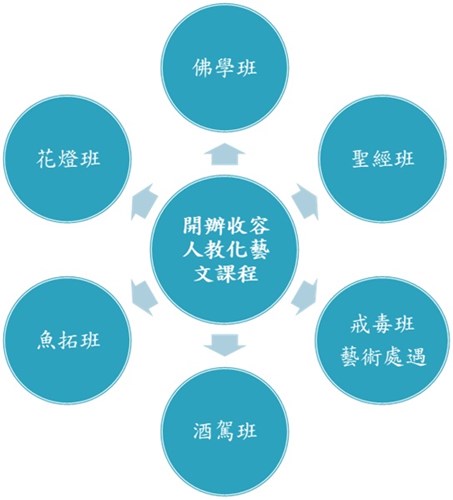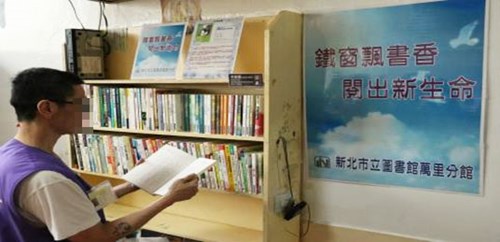Education business
- Publication Date :
- Last updated:2024-06-06
- View count:1028
Teach
- Individual education: face-to-face consultation and counseling by educators, psychologists and inmates, with a friendly and kind attitude at any time. The teaching is not rigid in form, and it pays special attention to the appropriateness of the timing of the counseling. Inmates who come to meet or special cases, give care and education.
- Categorical education: According to the results of the investigation and classification and the crimes of the criminals, according to their characteristics, they are classified and educated.
- Collective education: The instructors will carry out education in each dormitory, explaining various decrees such as the amendment of the criminal law, publicizing the Yike fine, and the successful drug rehabilitation plan of the Ministry of Justice. At the same time, arrange education volunteers or social volunteers to implement collective education in each dormitory, actively Promote laws and regulations on drugs, drunk driving, domestic violence prevention, gender equality and consumer protection.
- Religious teaching: According to the religious beliefs of the prisoners, Buddhist and Christian clergy are urged to come to the prison to carry out religious propaganda activities, and Buddhist conversion ceremonies and Christian baptism ceremonies are held from time to time to purify their hearts, appease their temperaments, and inspire their good nature. It also organizes religious courses such as Bible classes and Buddhist classes to purify and enhance the spiritual growth of the inmates.
- Acknowledgment and Assistance System: Hiring sages from all walks of life, Mr. Zhang from the Keelung National Salvation Corps, counselors from professional advisory groups such as the Keelung District Committee of the Rehabilitation Fellowship, and religious volunteers and rehabilitated counselors from the Rehabilitation Protection Association enter the prison for face-to-face recognition and assistance. The patient guidance of professional counselors allows the detainees to let go of their guards, express their emotions, and provide advice on family, emotional, and interpersonal problems faced by the detainees during their prison sentences, and seek solutions together.

Educate

- Various legal knowledge education: In order to strengthen the morality, life and rule of law of prisoners, we hire professional teaching volunteers and social volunteers to teach criminal law, consumer protection law, state compensation law, drug hazard prevention regulations and Domestic Violence Prevention Law and other laws stipulate and implement tests to enhance the legal knowledge of prisoners, so as to become law-aware and law-abiding citizens.
- Open talent classes: In order to enrich the life of prisoners in prison and improve their ability to adapt to social life, various professionals are hired to hold classes in painting, calligraphy and painting, and lanterns, so as to cultivate their temperament and change their minds through art.

Enrich the library equipment
- Enrich the books in the prison, actively contact the Keelung Branch of the Rehabilitation Protection Association, the Keelung District Branch of the Rehabilitation Fellowship, Human Fortune News, Reader's Digest Publishing House, Lecture Hall Magazine, Eslite Culture Foundation and other public welfare-minded people, and donate various types Books and manuscripts of Buddhist scriptures are available for inmates to borrow and copy.
- Establish a scholarly environment and encourage prisoners to write and contribute articles to achieve the purpose of spiritual reform.

Other care measures
- Each dormitory is equipped with a color TV and a cable TV channel to show relevant enlightenment and propaganda films to play the role of enlightenment.
- A symposium on the life of the prisoners is held every month to listen to the opinions of the prisoners and achieve two-way communication in order to properly take care of the life of each prisoner.
Progressive treatment and parole
- According to the Criminal Law, the Prison Execution Law, the Regulations on Progressive Treatment of Sentences and the detailed implementation rules, prudently handle progressive treatment and parole, so as to encourage repentance and play the role of enlightenment. The progressive treatment is divided into four levels, and the responsibility scores of each level are set according to the sentence and the number of crimes, from the fourth level to the first level, from severe to lenient. Parole cases of prisoners are reviewed by the Parole Review Committee, and scholars, experts, and social justice people are hired as committee members to ensure confidentiality, fairness, and justice, so as to meet the purpose and significance of parole.
- The selection of external parole committee members covers various fields such as education, mental health care, nursing care, rehabilitation protection, law, and police administration. Diversified evaluations can be made, especially the trend of gender mainstreaming. Currently, there are 8 parole external members in this prison. Among the hiring committee members, there are 5 women, accounting for more than 1/3.
- The selection and convening of the prison parole review committee shall be conducted in accordance with the provisions of the "Implementation Measures for the Parole of Prisoners".
- When filling out the fields of the parole report form, the educators of each parish should fill in the details according to the actual situation of the case. Educators use the prison administration system to handle parole reporting cases and release operations.








